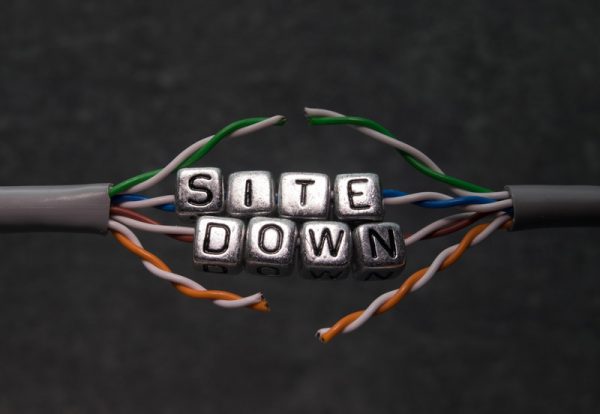
Image Credits: SEOxLink
Your website is down, now what?
Realising that your site is down is one of the most frustrating experiences at work you will ever have. But the sad fact is most websites will crash at some point for one reason or another.
If and when yours goes down, you need to call your developer and hosting provider to find out why. It will most likely be one of four reasons:
- Your hosting provider has gone out of business (it happens more often than you might think),
- Your site has been hacked,
- Your Domain name has expired, or
- SSL has expired.
Once you know the reason, you can start working on a solution right away. Here’s how to fix your website when it’s down.
If your hosting provider goes out of business…
Ideally, if your hosting provider is about to go out of business, they’ll give you a heads up. However, we’ve seen some less reputable providers disappear overnight.
The first and most important step is to get a backup of your files and data. Ask your hosting provider for these, but if can’t reach them, don’t panic – all is not lost.
Internet Archive’s Wayback Machine lets you find the latest snapshot of your website, so you can view most pages and content. It will take a bit of time, but it certainly beats losing everything and having to start from scratch.
Check if you have control of and access to your domain. If you don’t have access to your domain contact your Domain Registrar. If you are not sure who your Domain Registrar is you can find out using the domain lookup tool Whois.
To create a simple landing page you can use an interim hosting provider like Wix or Squarespace to setup a temporary online presence. This page should let your supporters know what’s going on and include your contact details and other key information.
Next, you’ll need to engage a web developer to recreate your website and find a permanent, reputable hosting provider.
This is a very unfortunate situation, but it can provide an opportunity for your organisation to improve your website design and content. We have put together some tips on how to do this here.
If your site has been hacked…
Hackers are getting smarter and sneakier all the time. There are a number of ways you can be hacked, including:
- someone uploads malicious files onto your server,
- a hacker injects code into your database, or
- they take control of your domain.
Most of the time you won’t know that you’ve been hacked until it’s too late. Your best line of defence is malware detection software – it can help you not only detect but also prevent infections or hacking.
If you know or suspect you’ve been hacked, ask your developer or malware specialist to review and report on the extent of hack and solutions available. Your server might just need a good clean or, in the worst case, you might need to completely rebuild your website.
Either way, remember: transparency is key. Advise your supporters about what’s happening and have a temporary solution in place while the issue is fixed (like a landing page as suggested above).
If domain name has expired…
When your domain name expires, it’s not just your website that will be affected. Everything linked to your domain name, like your emails, will stop working as well.
Check whois.com to find out the status of domain name. If it’s expired, contact your domain registry and process a renewal immediately. Once your domain expires, anyone can buy it and either start using it or leverage it to extort money from you.
#Tip: renew for five years or longer and set up automatic billing to prevent your domain name expiring.
It’s a good idea to use a general email (like admin@ or info@) so a few people in the organisation get a reminder when it’s about to expire.
Your SSL has expired…
Your SSL certificate allows secure connections from your server to browsers. With an expired SSL, you can’t run secure transactions on your website and it becomes vulnerable or inaccessible.
Contact the team that manages your SSL certificate, usually your hosting provider or web developer and renew it immediately.
Wrapping Up
Having your website go down unexpectedly is an incredibly stressful experience. Knowing the potential causes and solutions will help you prepare for it allowing you to stay calmer and handle it quickly.
We can help you be better prepared for when your website crashed, so get in touch.

